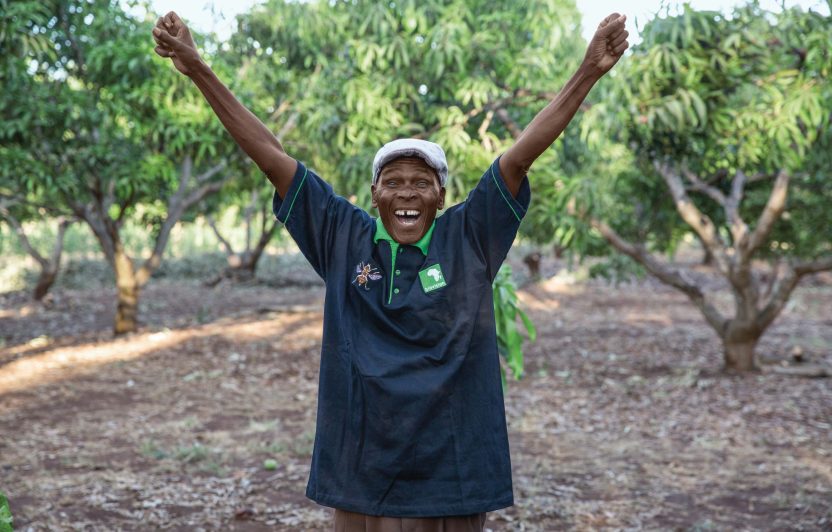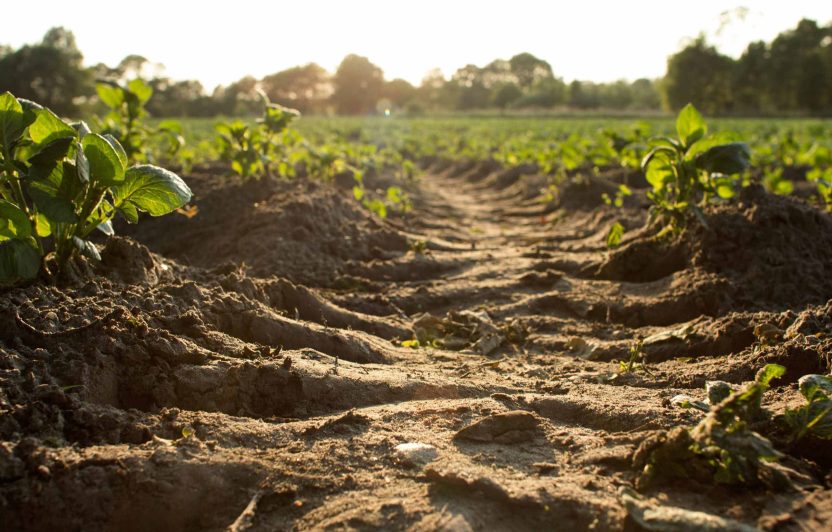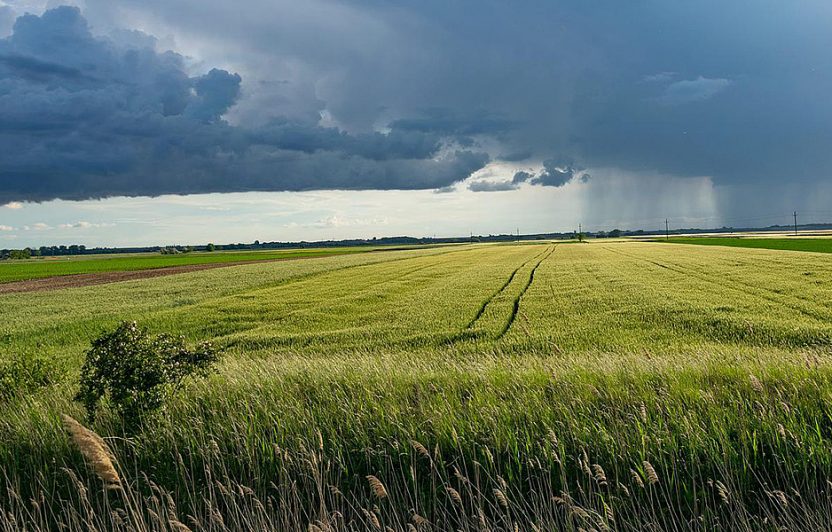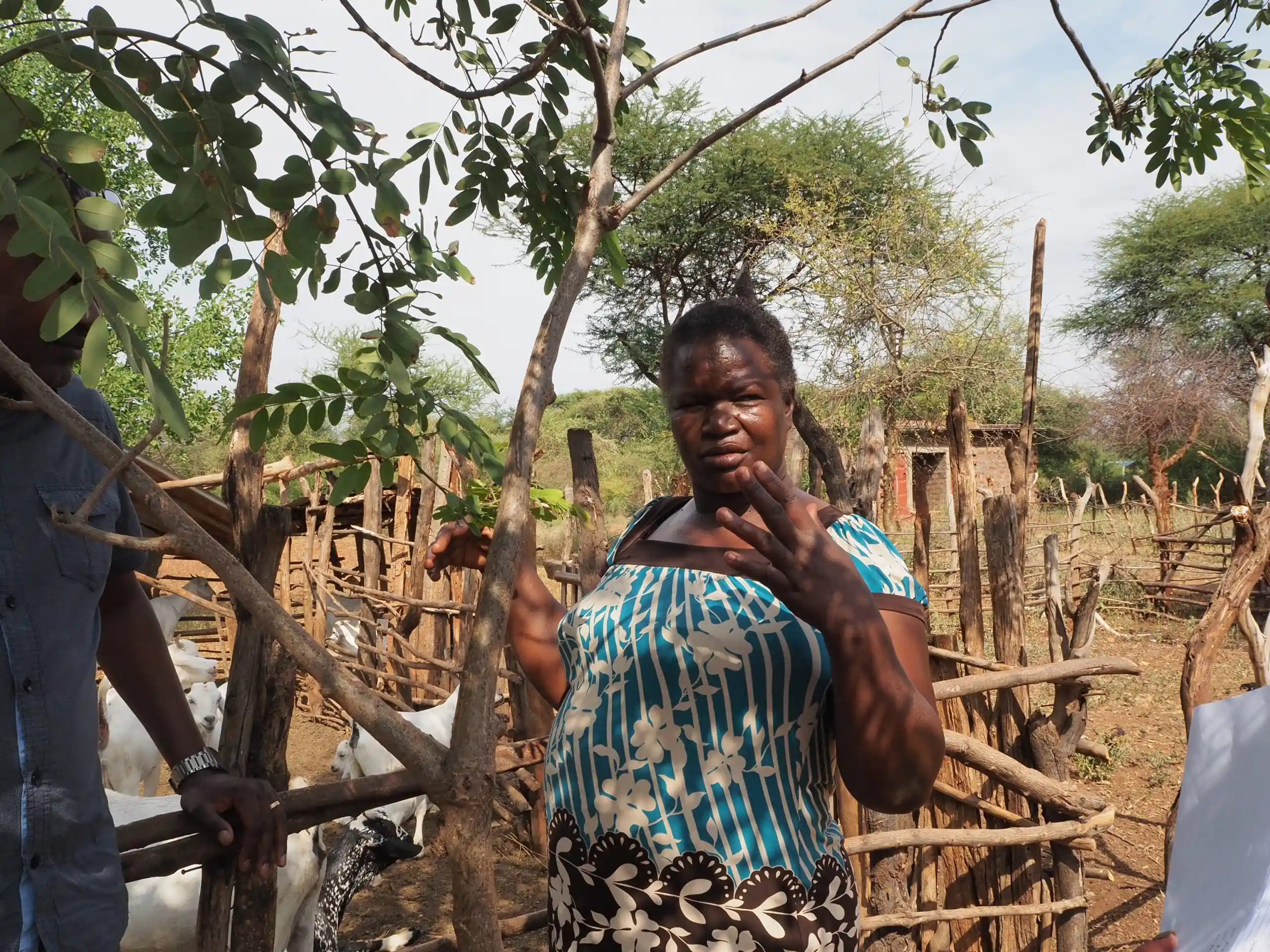
The fields are dry and dusty in the Tharaka-Nithi district at the eastern foot of Mount Kenya. Far and wide there is no green to be seen, even though it should soon be time to harvest maize and millet. What only sparsely sprouted due to lack of rain after sowing was barely enough to feed the cattle. Weather extremes – both during the dry and the rainy seasons – are becoming more unpredictable every year in East Africa, and they are causing increasing yield losses. The farmer Elizabeth Karimi is affected by this. She is expecting visitors from Nairobi and Switzerland on her small farm. For a study on the potential of agroecology, the guests want to learn more about her experiences with the consequences of climate change.
Agriculture is both villain and victim
Fabio Leippert of the Biovision Foundation is responsible for the study: “Globally, agriculture is both a villain and a victim of the climate crisis,” he explains. “With a quarter of greenhouse gas emissions, it is a major contributor to climate change. At the same time, farmers around the world are struggling with droughts or too much rain.” What is needed now are more sustainable and climate-resistant food systems. Leippert explains how this can be achieved: “Our study has shown that agroecological methods (which also include organic farming) contribute to climate protection on the one hand and increase the resilience of farms to climate change on the other. The success factors are improved soil health, greater biodiversity and a high degree of crop diversification, but above all better networking and knowledge exchange among farmers.”
Linking traditional knowledge and new insights
Biovision has been working with the Institute for Culture and Ecology (ICE) in Kenya since 2012. In the area around Mount Kenya, ICE now accompanies around 50 farmers’ groups with over 1,500 members. In agroecological field courses, the farmers learn, for example, how to increase water retention and prevent erosion by means of terraced fields and targeted planting or how to build up soil fertility with compost. Furthermore, suitable plants are adapted to local conditions, thereby increasing diversity. For example, arrowroot, which grows well in low-humidity soil, is not affected by drought or locusts because of its deep roots. Diversifying crops with millet, beans, peas, sorghum or amaranth, as well as medicinal herbs or spices, also contributes to mitigating risks and enriching diets. This diversity is also appreciated by pollinating insects. Training in modern beekeeping and community funding for new bee boxes further diversify production and help create new sources of income.
A key aspect of increasing resilience is to combine traditional knowledge with new (scientific) insights. The inclusion of all generations in workshops plays a key role. Seasonal calendars with traditional, often more resistant plant varieties have been developed, and maps of the communities that show the changes in the local natural areas over several generations have been created. The maps allow the farmers to draw conclusions about what changes they will face as a result of climate change and help them to develop strategies to be more resilient. Elizabeth Karimi is a member of a farmers’ group and is now better protected from the consequences of the drought that destroyed her maize harvest. Thanks to a newly built storehouse, the next sowing is secured, her bee colonies are busy and cattle and goats provide a “nest egg” for harder times.
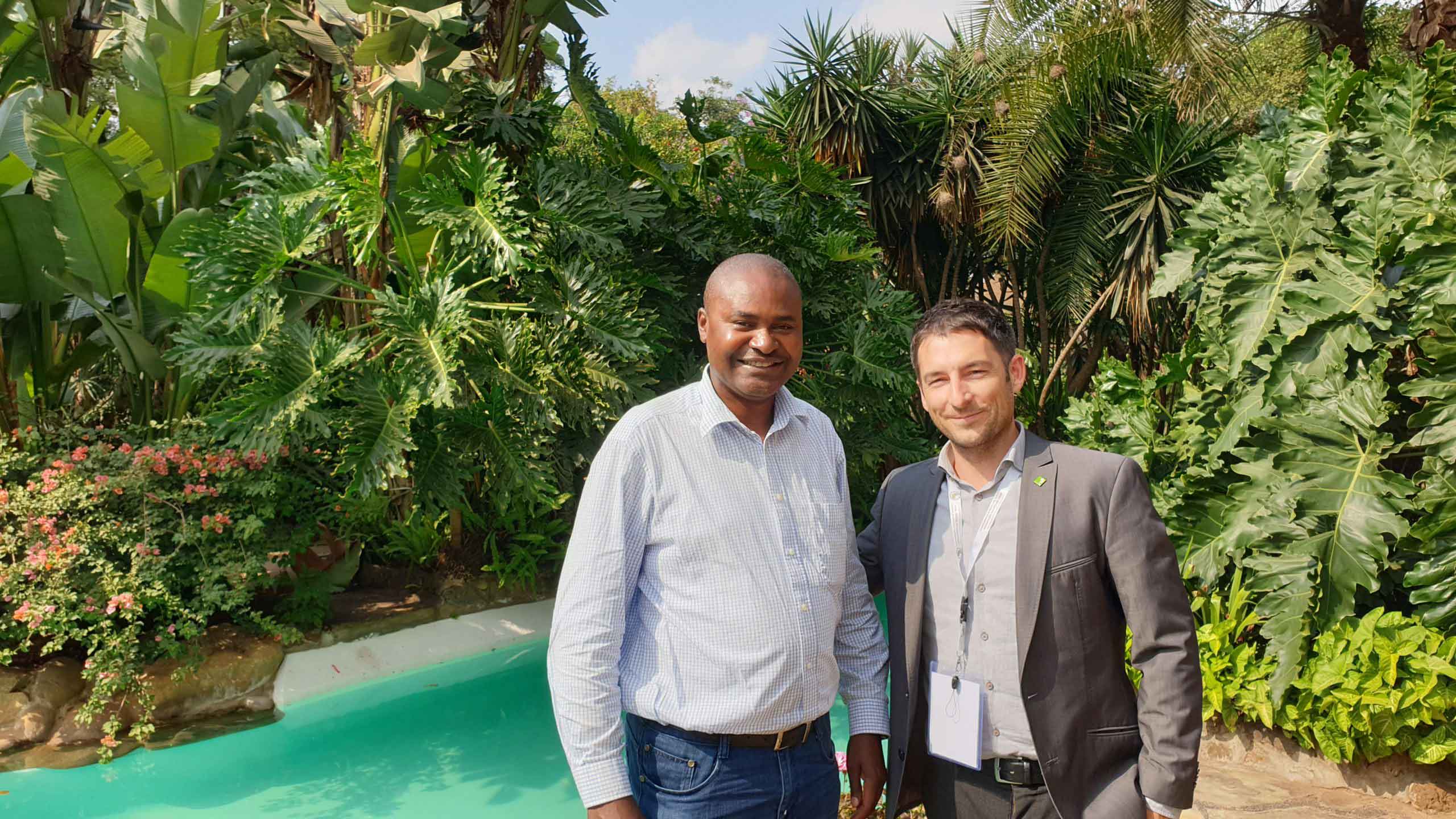
Study shows how agroecology contributes to climate change adaption
“What I learned in detailed exchanges during my visit to Elizabeth Karimi’s farm was confirmed in an evidence-based way by our study”, Fabio Leippert states. “In the analysis farmers practising agroecology show increased resilience, which helps them adapt to climate change more effectively.” In addition to the field studies, a meta-analysis was used to find out the key factors for this:
- Through improved soil health, biodiversity and high diversification within agricultural production systems, agroecology increases adaptive capacity to climate change and reduces the vulnerability of agroecosystems.
- Agroecology contributes to a reduction in greenhouse gas emissions, mainly by increasing soil organic matter (carbon sequestration) and reducing the use of synthetic fertilisers.
- A key role is played by institutional aspects such as the development of advisory services or participatory innovation systems to support farmer-to-farmer exchange. Context-specific knowledge can be jointly created and disseminated, which in turn promotes the development, strengthening and acceptance of agroecology.
“Climate change report”
The study “The potential of acroecology to build climate-resilient livelihoods and food systems” was conducted by Biovision together with the Research Institute of Organic Agriculture Switzerland (FiBL) and the Food and Agriculture Organization of the United Nations (FAO) and published in summer 2020. The results of the study can be found in this video.
Implementation: Now is the time for policy change
The third part of the study examined what role agroecology plays in today’s political context. On the positive side, the holistic concept of sustainable agriculture is on the upswing internationally and plays a key role, for example, in the United Nations Framework Convention on Climate Change (UNFCCC). Fabio Leippert is therefore convinced: “There is a great political opportunity to include agroecology as an adaptation measure to climate change.” But he is also sceptical: “Despite these positive signals, however, action – and money – are unfortunately still lacking! Only if the industrial coutries are willing to provide more support to poorer countries in climate protection change can happen. Only then female farmers like Elizabeth Karimi in the global South really get a chance to cope with climate change in the future.”
The original text was published in German in issue no. 199 of the journal Ökologie & Landbau which you can find here.


